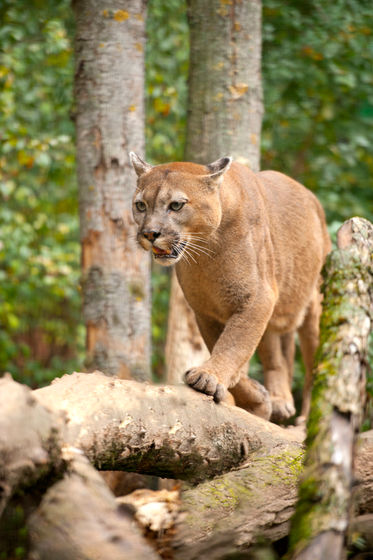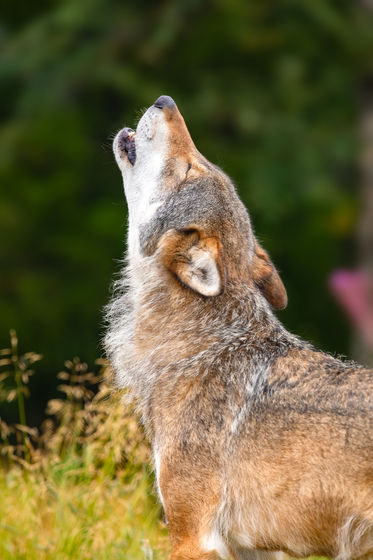It turns out that 'parasites' make wolves leaders of the flock

Wolves parasitized by the parasite ``
Parasitic infection increases risk-taking in a social, intermediate host carnivore | Communications Biology
https://doi.org/10.1038/s42003-022-04122-0
Parasite gives wolves what it takes to be pack leaders
https://doi.org/10.1038/d41586-022-03836-9
Toxoplasma, which uses feline animals as the final host, has an ecology that makes the intermediate host mouse bolder, loses its fear of cats, and increases the likelihood of being eaten by cats. However, little is known about the effects of Toxoplasma on wild animals living in their natural environment.
Therefore, a research team led by Connor Meyer, a wildlife ecologist at the University of Montana, conducted a study to analyze the behavior of gray wolves in Yellowstone National Park. The research team focused on wolves in Yellowstone National Park because puma, a large carnivore of the cat family, also lives in this area, and wolves steal food from pumas and eat pumas and puma excrement. This is because they can be infected with Toxoplasma by eating them.

When the research team collected a total of 256 blood samples from 229 wolves and examined them, the Toxoplasma infection rate was 27.1%. Of the wolves tested, 116 were male, 112 were female, and 1 was androgynous. Males had an infection rate of 25%, while females had a slightly higher infection rate of 31.25%. It wasn't the difference.
They tracked these wolves and found that infected wolves were 11 times more likely to abandon their families and form new packs and 46 times more likely to become pack leaders than uninfected wolves. rice field.
It is known that when infected with Toxoplasma, the secretion of hormones such as
``When we saw this result, we looked at each other with our mouths wide open, because the difference was much greater than we expected,'' said Mayer.

It is known that mice that become reckless due to Toxoplasma infection are more likely to be eaten by cats, but according to Meyer, ``It is unlikely that wolves will become prey to pumas because they are infected with Toxoplasma.'' That's what I'm talking about. However, North America once inhabited the largest known feline, the American lion weighing about 200 kg, and it is thought that it preyed on wolves until it became extinct more than 11,000 years ago. increase.
In the future, the research team plans to investigate whether Toxoplasma-infected wolves are more likely to breed successfully, and whether packs led by infected leaders are more likely to take risks, increasing the chances of encountering pumas. That's it.
Related Posts:







